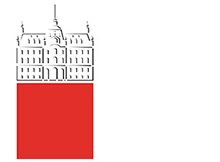The four-year doctoral study program was first announced in the 2019/20 academic year. With this academic year, enrollment in the 1st year of the three-year program is no longer possible.
The four-year study programme consists of organised learning (lectures, practicals, presentations of themes of doctoral dissertations etc.) amounting to 60 credit points (ECTS), while the remaining 180 points are devoted to individual research work for the doctoral dissertation.
The programme consists of two types of subjects:
- theoretical subjects (5 or 10 ECTS)
- individual research subjects (5 or 10 ECTS)
A doctoral student, together with the supervisor, chooses subjects from the selection of all the subject included in the programme. The study plan is approved by the coordinator of the scientific field of study the doctoral student is enrolled into.The choice of other subjects is possible from among all other elective subjects and from the syllabuses of other comparable programmes of domestic and foreign universities that have programmes evaluated by the ECTS or other systems that enable assessment of comparability. In the 1st and the 2nd year, the students can select courses from other programmes amounting to up to 15 ECTS. A doctoral student chooses subjects in relation to the research field of the doctoral dissertation.
Modes and methods of implementation of the study program
The doctoral study programme is organized and implemented according to the credit system principle. The study comprises lectures, seminars, consultations, individual learning and active participation in research processes. If there are less than 5 students registered for a course, the course is carried out as consultations. A student discusses the arrangement of consultations with the professor responsible for the course (the one whose name is written first if there are more than one professors). When 5 or more than 5 students are registered for the course, lectures are organized, the timetables of lectures are published under the chapter: Schedules.
Methods of assessment
In accordance with the Statute UL, success in exams will be evaluated by grades from 5-10 whereby grades from 6 to 10 will be considered pass grades. There are no partial examinations in subjects. The course coordinator decides on the type of assessment.
Examinations under the programme will be written or oral, or a grade may be obtained in entirety through seminar tasks or projects.
Change of scientific field of study
A student may change the scientific field of study up to the time when he/she submits an application for approval of the theme of the doctoral dissertation. A request for changing the field is dealt with by the Programme Council for Biosciences.
Change / removal of an already enrolled subjects
A doctoral student of Biosciences may request to change a subject in which he/she is already enrolled only if he/she has not attended lectures or consultations. The request, which will be dealt with by the Programme Council for Biosciences, must be signed by the student, the supervisor, the person responsible for the subject from which the student is to be removed and the person responsible for the subject in which the student wishes to be enrolled.
Structure of the study program by year
Year 1
- elective subjects (choice possible among the chosen or another scientific field) - 30 ECTS
-
individual research work - 30 ECTS
Total 60 ECTS.
The doctoral student chooses 30 ECTS from subjects in the following manner: the subjects are chosen in accordance with the supervisor based on the candidate’s research area. The study plan is confirmed by the coordinator of the selected scientific field of study.
Doctoral students may already attend presentations of the themes of doctoral dissertations of other doctorands in their first year of study. Participation in at least three presentations is a prerequisite for applying for a doctoral dissertation theme in the second year of study.
Year 2
-
elective subjects (15 ECTS)
-
successful presentation of theme of doctoral dissertation (5 ECTS)
- individual research work (40 ECTS)
Total 60 ECTS.
In the second year, a doctoral student chooses elective subjects to a total extent of 15 ECTS: subjects shall be chosen in agreement with the supervisor and in relation to the field of the research work. The study plan is confirmed by the coordinator of the selected scientific field of study.
A doctoral student hands in an application for approval of the theme and title of a doctoral thesis by the start of the summer semester in the second year of study the member institution holding the programme and being responsible for the coordination of the scientific field of study the candidate is enrolled in.
By the time of submission of the application for approval of the theme and title of their doctoral dissertation, a doctoral student must have attended the presentation of at least three themes of doctoral dissertations of other doctorands. At the time of submission of his application, she or he shall attach evidence (form) by which she or he proves participation in the presentations of themes.
Year 3
-
individual research work (60 ECTS)
Total 60 ECTS.
The content of the 3rd year shall relate to research work and preparation of scientific article.
Year 4
-
individual research work (50 ECTS)
-
successful presentation of doctoral dissertation prior to defence (5 ECTS)
-
preparation of a doctoral dissertation and public defence (5 ECTS)
Total 60 ECTS.
The content of the 4th year shall relate to research work and preparation and defence of the doctoral dissertation.


